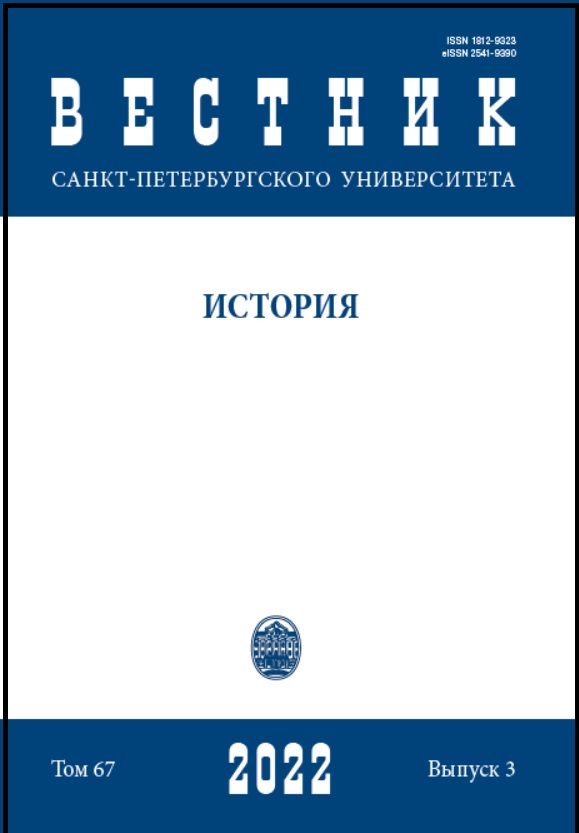Nature Management from the Perspective of the Ministers of Agriculture and State Property of the Russian Empire
DOI:
https://doi.org/10.21638/spbu02.2022.304Abstract
The article examines how the reports of ministers of Agriculture and State Property reflected the results of their official trips across the Russian Empire and their evaluation of the manifestation of intensive use of natural resources. It also analyses the impact of their opinions and suggestions with regard to the state nature management. The main methodological approach lies in the ideas of environmental history — an interdisciplinary scientific area devoted to various aspects of interaction between man and nature. Ministerial notes on the results of their official trips, along with the State Audit Office, senatorial audits, annual reports of ministers and governors, created an overall picture of the state affairs for the emperor. The article presents an analysis of 11 reports by M. N. Ostrovskii and A. S. Ermolov for the 1880s–1900s based on the archival and published sources. The duality of perception of environmental problems by ministers is noted: they had to balance between the maximum use of natural resources for the economy and the need to protect them from depletion. Often, the ministers’ suggestions on the careful nature management were taken into account in the government decisions. Thus, since the end of the 19th century, reclamation, reforestation, and other activities had been actively carried out. Also, there was an intensive development of the Ural and Siberian resources. The trips of the ministers of Agriculture and State property played an important role in identifying, diagnosing, and minimizing the environmental problems. However, the state nature restoration didn’t adequately compensate anthropogenic damage to nature. That was because the state paid more attention to geopolitical and economic development, which led to the extensive use and depletion of natural resources.
Keywords:
Russian Empire, Ministry of Agriculture and State Property, M. N. Ostrovskii, A. S. Ermolov, natural resources, nature management, environmental history, protection of nature
Downloads
References
References
Downloads
Published
How to Cite
Issue
Section
License
Articles of "Vestnik of Saint Petersburg University. History" are open access distributed under the terms of the License Agreement with Saint Petersburg State University, which permits to the authors unrestricted distribution and self-archiving free of charge.





